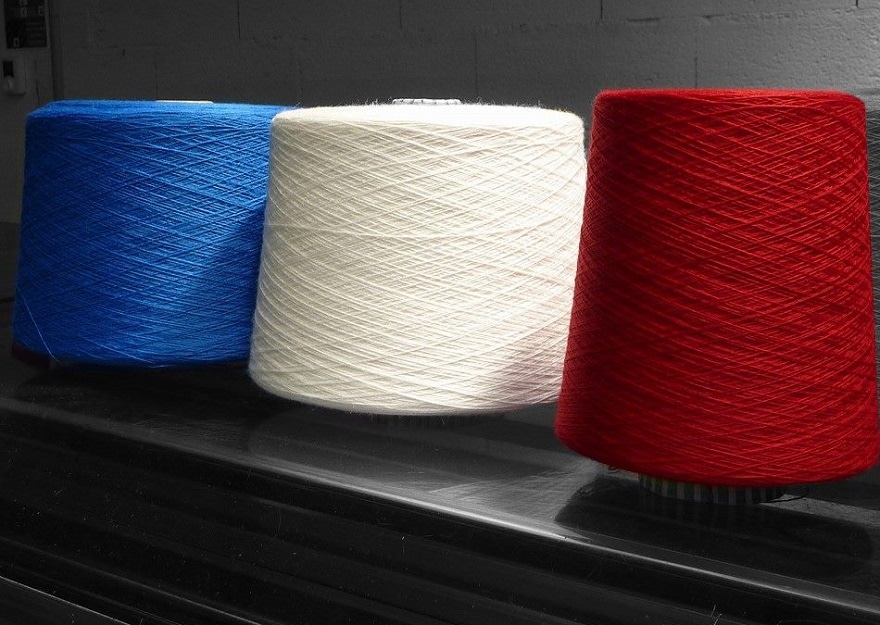Buy French! Is this a denial of reality, when the current situation requires us to be energetic and take into account the sense of history that is moving towards the free movement of goods? Or, as the philosopher and psychoanalyst Cynthia Fleury, author of " The End of Courage" who does not see in the encouragement of national consumption an unrealistic fantasy, but rather the end of a schizophrenic behaviour opposing our identities as workers - fearing for their activity - and as consumers - buying at the best price?
Is globalization an enriching factor for all? Or a new disguised form of slavery?
Currently, in France, it is almost impossible to know where products were designed and manufactured...The marking is unclear. It was believed for some time that technical products could remain French... For clothing and underwear, bras, in particular, which are fairly technical products, have resisted relocation. It was thought that a French brand, such as Lejaby, which was positioned at the top end of the market, could continue to manufacture in France. The company has just been taken over so that manufacturing remains in France; it is fragile, let's hope that the new CEO succeeds, but only 4% of the bras that French women wear are now manufactured. Moreover, apart from luxury and health products, all everyday consumer goods are, at present, increasingly manufactured abroad, either under their original brand name, which remains exploited but no longer means anything, or counterfeit.
Examples of products that are almost no longer manufactured in France include ready-to-wear, tools, toys, household appliances (apart from SEB), televisions, light bulbs, mobile phones and even some food products. More than 7 million products are intercepted and destroyed every year, and this number is increasing. This would tend to prove that France is not a sufficient deterrent for counterfeiters.
Arnaud Montebourg (PS) communicated to make us buy French. The vast majority of Germans do it naturally, out of patriotism and they are proud of German quality, even if the WV scandal will seriously damage the reputation of quality of German products and prepare a beautiful crisis of the German industry. We might be prepared to buy French, but to do so, consumers would have to be informed by clearly indicating the origin of the products and the percentage made in France. Because globalisation has led to partial relocations, with part of the products manufactured abroad and part, for example, of the assembly and finishing made in France... Is this still a French product?
Manufacturing relocations have become so widespread that if the government tried to revive the economy through consumption, it would above all increase France's trade deficit. Except for certain food products, in almost all areas of our consumption, we have to look hard to find a French product.
French products often no longer exist.
If we asked a Frenchman in his kitchen, to throw away everything that wasn't made in France, we would find this poor naked man, in an almost empty kitchen, with maybe half of the furniture (Cuisine Schmidt, Mobalpa and Arthur Bonnet are still French), with a few household appliances (Seb is still French), some vegetables on the table, beef, more and more chickens are Chinese, no Amora mustard (mustard seeds are mostly grown in Canada and Romania, the factory at the historic sites of Dijon and Appoigny have been relocated by Unilever to Spain and the Czech Republic).
This man would not have a plate, nor cutlery (Limoges porcelain is damaged and more and more stainless steel cutlery is made in China). Perhaps he will be able to keep his Laguiole by hand and again, only if he has not bought, without knowing it, a Laguiole not really from Aubrac. Laguiole is an appellation that does not really protect against Chinese and Pakistani counterfeit products, and some establishments in Aveyron do not play the local game by importing and making their products look like Laguiole. Only the Laguiole forge and a few rare craftsmen still make these magnificent knives by hand.
We can see, for example, that all these delocalized products, in order to "make" more margin, by selling them at almost the same prices as if they were made in France and by benefiting from the quality image of French products, have made importers richer but have gradually caused France to lose many production jobs .
To understand the margins that the textile multinationals were making on our backs as consumers in developed countries, I dressed from head to toe in a supermarket in Ho Chi Minh City (Saigon) two years ago.
I paid 20 euros for a very well cut trousers in light cotton for the summer, a good quality short sleeved shirt, treated so that it doesn't need ironing, briefs, socks, a t-shirt...and yet the supermarket probably made a normal margin... I think that in France I would have paid 200 euros for the same clothes... The margin for French brands is 10 minimum!
We must not forget that what is called the market price is never the cost price, but is always the price that the consumer is prepared to pay for the product.
It is understandable, in relation to the cost price on leaving Vietnam, that multinationals benefit more from globalisation than consumers.
Benjamin Carle, a journalist, wrote a book, after a successful experience of consuming French products for a year... Of course, he had enormous difficulties, he might have had fewer problems if he had decided to go and spend a year with the Pygmies... He succeeded somehow, but what a lesson!
Most of the products purchased by French consumers are, without our necessarily being aware of it, imported.
The waves of relocations that we have suffered are now preventing our governments from reviving the economy through consumption, and the trade balance would be in even greater deficit!












